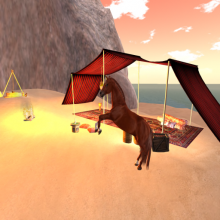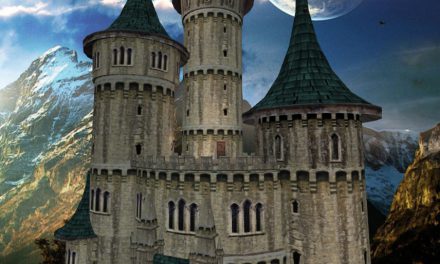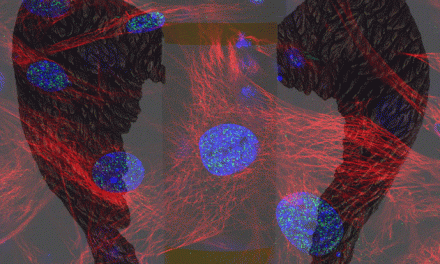By
Lida Broadhurst
Even a child newly slipped from a mother’s womb knows that in our Tribe, the early morning hours are sacred to the Horse God Ergane. And every morning I, as first born sit with my father, the chieftain Ogri, as our horses gallop, the shadows of their legs striping the rocks like gray snakes.
This morning we followed the ritual, although we had spent the night praying for my young sister Melika, who lay on her pallet burning with sudden fever.
Today I cared little for the horses. All I cared about was my poor sister, shivering on a pallet in our goatskin tent. Melika, the light of our tribe, and even our horse master Tapanka agreed she could handle a horse better than most of the stable workers.
As my mother Kiva said, “Watch their eyes gazing into hers. They see into her soul and they know she loves them.”
“And they trust her too,” I had added.
Suddenly something hard bumped against my shoulder. I smiled at old Abenyu, a brown horse, who had wandered several years ago onto our land from the sands. His head hung low, his coat dusty, he had walked slowly. He seemed to know if he lay down near our tents, he would never arise.
Topanka had scowled “Ugly beast, we can make slippers from his hide.”
Melika’s brows drew together angrily. “He has kind eyes. Father, let him stay. And we must name him so the Tribe will know he has chosen to live with us.”
The horse master shrugged. “Very well, we’ll call him Karedy— a fitting name for such a creature.”
Melika’s eyes flashed. “No, he will not be called a nothing. He is to be called Abenyu, the Chosen. Then all will know he is deserving of our protection. Bur first I myself will brush his coat and offer him food.
Topanka scowled. “There is no time for that. You are my assistant and I want you to…
“I am the Chieftain’s daughter and…”
My father asserted his authority. He wanted no quarrels over such a poor specimen of horse. “Topanka, it should not take much of Melika’s time to brush this animal. Ergane will claim him soon.” He smiled, “And occasionally even we must bow to a women’s whim.”
Soon, it seemed he had lived with us always, while the gray and the red and the black spotted foals were born and grew and were sold to other tribes who knew our horses lived under the blessing of Ergane. With regular feedings and rest, his coat developed a shine and Melika braided a red leather collar which he allowed us to put about his neck.
Oddly, even our spirited horses with hooves that could slash like knives, stood aside and let him eat first when the vessels were filled with grain and water.
The younger children who were taught never to approach the great stallions ran to Abenyu, calling his name and patting him. Patiently he stood while they clambered on his back. Gently he walked around the stable yard so they lost any fear of riding. Soon even the horse master said, “Once they ride Abenyu, they could ride a lightning bolt.”
My father’s voice interrupted these memories. “We will not watch long today, Paliki. We must not let her fall into eternal slumber before I pronounce the blessing for her final journey.”
I nodded . . . my throat too dry to allow words to sprout in my mouth. I remembered the words of the Healer Matgamma, last night after he had briefly touched her forehead. “Ah she is hot, as if the Sun God Cygune has claimed her as a bride.” He bit his lip. “Even I cannot thwart a deity’s desires.”
‘Old hulva,” my mother Kiva had muttered. “And this fool says he can battle any illness”
“But not every battle can be won,” the healer retorted. He added, in a sly reference to our prize stallion Rigya’s last race, ‘And no matter its heart and strength, not every horse can win every race.”
My father said nothing, but clutched Melika’s hand as if he could send his own strength coursing through her blood. Then we had left the tent to spend the hours until dawn, praying to Thera, the Goddess whose tears drip kindness.
A shriek sliced across the sudden silence and my father and I jumped up and rushed to the tent where my mother and her maids sat near my sister’s bed. Thera, I prayed, do not wrap my sister in your robes. Surely you can take …but here I stopped such thoughts. The Scrolls forbid us to wish for another’s death, especially if it would prevent death to a loved one.
But now as the sun rose higher and higher, Matgamma, pushed aside the curtains of the tent where my mother crouched near my sister. He muttered “Only Thera creates miracles.”
He threw up his hands, as if he were summoning the Goddess, but I felt the gesture meant my sister’s departure was imminent.
My mother’s sobs pierced my heart like an arrow. Useless were the midnight offerings we had made to Thera,
My father dismissed the Healer with a wave of his large hand. His face crumpled into a scowl. “I am shamed before you, Paliki. These hands control a raging stallion as if he were a foal. You have seen me knock aside an insolent bandit as I would a stalk of grass. Yet I cannot conquer this fever that consumes my darling. Even worse my eyes which see as far as the holy mountains cannot see what the demon has sent to destroy her.”
Abenyu had followed us to the door of the tent. I remembered that our scrolls proclaimed that when misfortune strikes, we must ask Thera to grant us peace and understanding. For Her thoughts are not ours and we must believe that good will triumph.
Still if my sister died, I could not see what good could come of it, I did not think my father and mother would be able to conquer their grief.
Ah my mother Kiva. Her slim fingers brushed away tears. Like my father and me she too was angry at the demons who blew fever into my sister’s mouth. But I also knew, again like my father, she despised herself for allowing the demon to see her tears.
My father said, “We must hope the healer will find another treatment or we must lift our faces to accept wherever our destiny leads.” He looked at me sternly and added. “Paliki, you will sit one day in my council seat and you must help carry her to the Cave of Unknowing.”
I nodded, too upset to even think that the light would vanish from her face like the sun sinks behind the mountain. Dear Melika, not yet (learned in the sweet delights of a woman/ of the age of marriage). But she had cast shy glances at our neighbor Ohai and he had smiled too, and asked permission to speak to her.
As I hesitated, I noticed that Abenyu, old as he was, had been keeping pace with me, and now he too stopped and looked at me and snorted. ”Leave us, Abenyu, you old thing”, I said, pushing at his chest. ”You cannot enter the tent and disturb our vigil.”
But the horse began a kind of trot, as if to say, hurry up, Paliki, or it will be too late. But too late for what, I had no idea.
The tent of gemeku fur loomed like a dark rock against the lighter sand. Already the high pitched voices had begun the chant for those who no longer see the words of the Scrolls. My father half stumbled the last few steps like an old horse ready for . . . Abenyu pushed me again. For an instant I had a vision of the horse, my father, and Melika all drifting away from me towards the Holy Mountain.
I rushed ahead not even pausing to help my father, and pushed the curtain flap back as if it were the weight of a stone door that blocked my path.
”Paliki”, my mother’s voice scolded. ”Do not rush in like a stallion seeking grain. Respect your poor sister’s final moments.” She smiled at me to soften her words, but the sight of my sister lying white and still halted me, like a violent tug on the reins. But a blow on my back forced me forward, and I thought, my father has come at last.
Of course, we could not say truthfully that Melika had ever done anything to produce a graceful mare or a plunging stallion. Still she wove the most beautiful portraits into our Tribe’s robes and scarves. Anyone could know that she loved these animals. She even had a kind word for the wolves howling for a taste of horse flesh. ”They are hungry and we must suffer hardship so that all under the Creator’s protection can eat.”
While my thoughts twisted like threads from a loom, my father had flung himself beside Melika’s pallet.
Abenyu stood beside me, head turned toward me, his eyes gazing into mine as if searching my mind. But what could a horse know of human grief? More importantly, what could he do against fever and death. He turned away from me and then went forward, slowly, slowly, his head down as if he were going to the butcher’s tent. I saw the grey hairs in his tail and the shine leaving his coat that I had brushed only that morning. Even his hooves moved like gray stones unused to carry him far.
Zuki and Penbatu, our maids, wept silently in a corner, their tears spotting the floor like animal paw prints. I whispered ,”Yaratik vaku” at Abenyu, and he stared over his shoulder at me, as if wondering why I muttered a curse against demons at him.
But the moment had been snatched from me. Probably I had angered Ergane, for now Abenyu turned into a blur of brown fur. I realized I was staring at a horse rearing on hind legs—something Abenyu had never done. For to a horse, it meant a position of power to amaze his enemies. And poor Abenyu was just an old powerless animal, good only for giving pleasure to children.
But the figure stretched higher and higher until it lost all color and resembled a statue white as the images of the moon goddess Melika and others wove into tapestries or carved on buckles and knives. Melika had woven an image like this on a shawl. One she had never offered for sale. Perhaps that fickle one who changed her shape every night had come to help my sister pass through the curtain between life and… but I could never say that word even in my mind.
Higher and higher the apparition stretched, shining hooves pawing the air. We fell to the ground, begging Thera to place her kindly wings about us.
Even Matgamma forgot his pride and screamed,’ A demon has come to claim Melika. I have failed Ogri and Kiva. I will beg this demon to carry me away.”
His words faded like the last breath of the dying, the sobs continued, but rising above them I heard the scream of a horse who has triumphed over an enemy, and trampled it in the dirt.
Now this white beast landed with a thump, coming to rest beside Melika. He bent his head and a silky mane floated over her and she was lost to our view. But not before I saw the thin twisted horn on its forehead touch my sister’s breast.
His name escaped me, but my father whispered, ”Kabra Jahl”, and I knew this indeed was the mystical being who… But it is not for me to recount the tales woven round him, their myriad threads hiding his reality as his mane had covered my sister.
Perhaps Thera had answered our prayers. Just this glimpse of this being, muscles flowing like long strands of holy music,…truly I cannot explain it and indeed for the first time I doubted if even those who wrote the Scrolls could make it any clearer.
All I could remember was that in what seemed a minute the vision vanished and Melika sat up, rubbing her eyes as if awakening from a nap. Her skin pulsed like petals, and no longer looked smeared with ash.
She pushed aside the silk quilt that covered her and leaped up like a newborn foal, even wobbling a bit on legs that were not quite used to walking. “Mavri,” she said and ran to Kiva like a child who awakens and does not recognize her home. ”This tent is strange and not like the visions that haunt my rest. As if I have travelled to the Cave of Unknowing.”
My mother turned pale and clasped her tightly. “Not for many years, dearest child, years and years while you clasp children of your own, and children of their own and . . . .”
My father laughed, “Enough that she is with us for this day,” he shouted.
Even in my joy, I looked about for the Kabra Jahl but it had disappeared. My father whispered to me the next day he doubted the beast had even appeared, and since our healer announced to our people that it was his ointments and potions that had saved Melika; we decided that in our despair we imagined that the Dwellers at the Gates had sent a vision to comfort us.
But, my mind insisted— what would be the purpose of the Watchers if the Jabra Kahl existed only to comfort, and why did the twisted spiral need to touch my sister. Perhaps it had been sent to guide her to the Gates. But she was not taken from us, nor did she then or at any other time remember the vision. Actually, it vanished from everyone’s memory.
Matgamma strutted among the tents. ”My potions healed the Light of our Tribe,’ he boasted. My parents never mentioned that Melika had refused to drink his elixir, so his fame increased.
The next morning my father said, “Let him squawk like the tanto bird. Melika lives and perhaps just the perfume of his elixir helped. It is all the explanation we will get in this life.”
Later, I found Abenyu munching grass with the other horses, all of whom seemed to nod to me as they always did. Abenyu’s coat shone once again. I rejoiced that perhaps he would amble about for more years.
My sister never spoke of her illness, nor did she show any interest in what had happened. ”You are silly, Paliki,” was her response when I tried to speak of Jabra Kahl. “No wonder Thera has tangled your tongue so it cannot speak truth.”
Still my sister was restored to us, and lived to speak binding vows with Ohai. Our horses flourished so that even those beyond the Great Sea travelled to buy them.
And then one day Abenyu was nowhere to be found, upon telling my father the news just before our morning ritual he only smiled.
Then Ogri said, “We all have our times.” He patted the fur beside him and I squatted down to rest beside him. “Paliki, I can go to the Cave happily for you are ready to lead our Council.”And that should have made me happy for it had been my dream for so long that my father would proclaim me the next Chieftain.
But although I loved watching the line of horses pour across the sands like the brown syrup we ate with our cakes, I never again felt the sharp silver shock of the Kabra Jahl. Never saw that burst of silver blot out the world I knew and loved.
When I open the Scrolls and look for explanations which the letters do not form. I close my eyes and under the lids shape the beauty of my wife Tkal and her gift of healing. And the round chubby face of my first born, Tayim. And the sharp windings of that spiral touching my sister’s breast.
Yes I am grateful for the family I have, and pour the first wine in the sand gladly that any thirsty Deity may drink. Yet . . . and yet, the Jabra Kahl has awakened some longing within me, a serpent that never sleeps, and I wish . . . But here I must end this tale and secretly nourish the hope that someday that serpent will be slain. And I would walk with Abenyu again.



